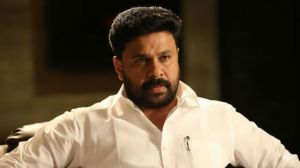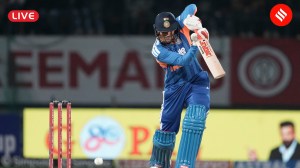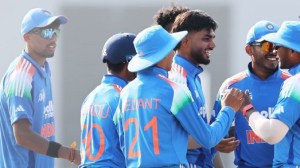The late Philip Roth, who managed to produce several examples of the Great American Novel, developed a pattern in the 1990s and 2000s, when he produced some of his best work. The reader would be introduced to a character – sometimes Roth himself, often his alter ego, Nathan Zuckerman – who is invariably a Jewish male from New Jersey.

Initially, the novels feel biographical, even self-indulgently autobiographical. But, as the plot unfolds, the reader, without realising it, is exposed to a major political faultline of modern America – race, class, gender, neo-colonialism – through the story of the Jewish kid from Weequahic High School, Newark.
The first instalment of Abhishek Choudhary’s two-volume biography of Atal Bihari Vajpayee is one of the most significant works of non-academic history in recent memory, for multiple reasons. Like Roth’s fiction, Choudhary has provided not just an account of a ‘great’ man’s life but rather, a vivid portrait of a worldview that today – more often for the worse – seeks to remake India in its insecure image.
 Vajpayee, throughout his life, was a committed and ardent supporter of the RSS. (Source: Amazon)
Vajpayee, throughout his life, was a committed and ardent supporter of the RSS. (Source: Amazon)
In the single-party-dominated polarised politics of today, Vajpayee’s tenure as PM and, by extension, the man himself have been mythologised, eulogised, and in rare instances, vilified. For example, Choudhary discovers that Vajpayee, who was described as MA-LLB to bolster his image ahead of an election campaign, did not complete his law degree. His role in the Quit India movement (which, incidentally, the Hindu right took no part in) was also exaggerated. Yet, these poll-time jumlas from 70 years ago have stuck to this day.
By going back to primary sources, Choudhary provides a detailed picture of Vajpayee’s life, from his early years in Bateshwar, a small town near Agra that was already in steep decline in the 1920s until 1977, when the RSS-Jana Sangh became an integral part and significant faultline of the Janata formation.
But a good biography is not merely a compilation of facts, or even “a vivid portrait” (a phrase now used ad nauseam). While Choudhary is sympathetic to his subject – as any writer is bound to be – he is not a cheerleader.
Story continues below this ad
Who, then, is the ‘real’ Vajpayee? Was he a “mukhauta” (as Govindacharaya described him), a mask that the BJP and Sangh put on to make themselves palatable in the era of coalition politics? Was he truly the “right man in the wrong party”, a Nehruvian by instinct and a majoritarian nationalist by ideology? Then there’s the late PM’s far-from-conventional personal life – which has been the subject of casual gossip for years.
Vajpayee, throughout his life, was a committed and ardent supporter of the RSS. First, as an editor of Hindutva organs and, later, as a political figure, he was instrumental to Jana Sangh’s rise. His writings, including his over-hyped poetry, betray from the earliest years the ahistorical, anti-minority, parochial outlook that forms the core of the Sangh’s ideology. Vajpayee’s quite serious engagement with foreign policy, too, is rooted in the anti-Congress, anti-Nehru political project. He espoused the RSS line that Indian Muslims were traitors, and never condemned the Hindu right’s anti-Gandhi stance, which prima facie led to his assassination by former RSS member Nathuram Godse.
Yet, there are rare instances when Vajpayee betrayed an admiration and even sympathy for Nehru (though these are far outweighed by his vilification of him), notably in his eulogy. It was by taking on Nehru during the China war, both within and outside the House, that Vajpayee’s stature grew considerably. The young leader couldn’t help but admire how independent India’s tallest leader gave space and respect to the Opposition.
Choudhary also provides a detailed account of the 1960s upto 1977, the ups and downs of the Hindu Right during that period and how Vajpayee played an instrumental role at every juncture, not least in forming the SVD coalitions and during and after the Emergency.
Story continues below this ad
But, perhaps, the most important contribution of the book, much like some of Roth’s work, doesn’t lie in the protagonists’ story.
 Atal Bihari Vajpayee’s high-school exam marksheet. (Source: Picador India)
Atal Bihari Vajpayee’s high-school exam marksheet. (Source: Picador India)
Since the 2014 general election and more so since 2019, a question looms large over Indian politics. Violence against minorities, ‘encounters’, constitutional leaders playing priest and ‘grand’ temple inaugurations – all a part of ‘New India’ – seem to yield political and electoral dividends. Was India’s majority community, even its elite and leadership always hiding a majoritarian sentiment? Put another way, did the BJP-RSS create the Hindu vote or did it merely tap into it?
Within the Congress leadership – including and especially Sardar Patel – there was an affinity for the RSS and the hope that its cadres would become an instrument for a particular faction within the party. Mahatma Gandhi drew the ire of the likes of Vajpayee precisely for the same reasons he was assassinated. For all the Hindu (mostly Vaishnavite) idioms he deployed, Gandhi stood up against untouchability and refused to compromise on Hindu-Muslim unity.
For all the invocations of “political untouchability” and victimhood by the Hindu right, it was protected and promoted by very powerful factions of Congress.
Story continues below this ad
Choudhary’s work, then, is as much a history of 20th-century India from the RSS-Jana Sangh vantage point as it is a biography of Vajpayee. He manages to show how a simplistic ideological framework, with political and even state support, managed (and continues to do so) great strategic and tactical nimbleness.
Turning India’s Hindus into a political, voting group is the result of on-ground work, and figures like Vajpayee have been instrumental to that project.
The second volume, where Vajpayee’s years in the relative wilderness and his exaggerated “moderate” stance as PM will be explored, will certainly provide more insights into a figure who is both iconic and obscured. Hopefully, it will shed as much light as Part 1 on the underpinnings of New India.

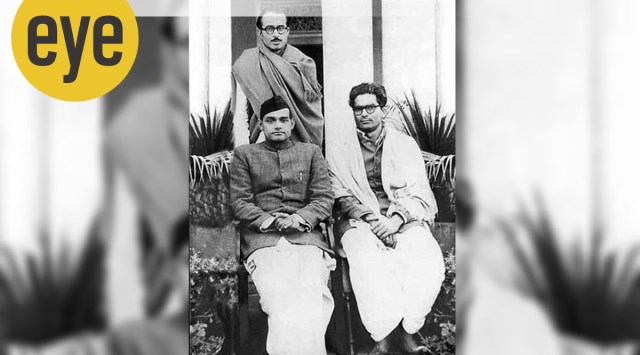

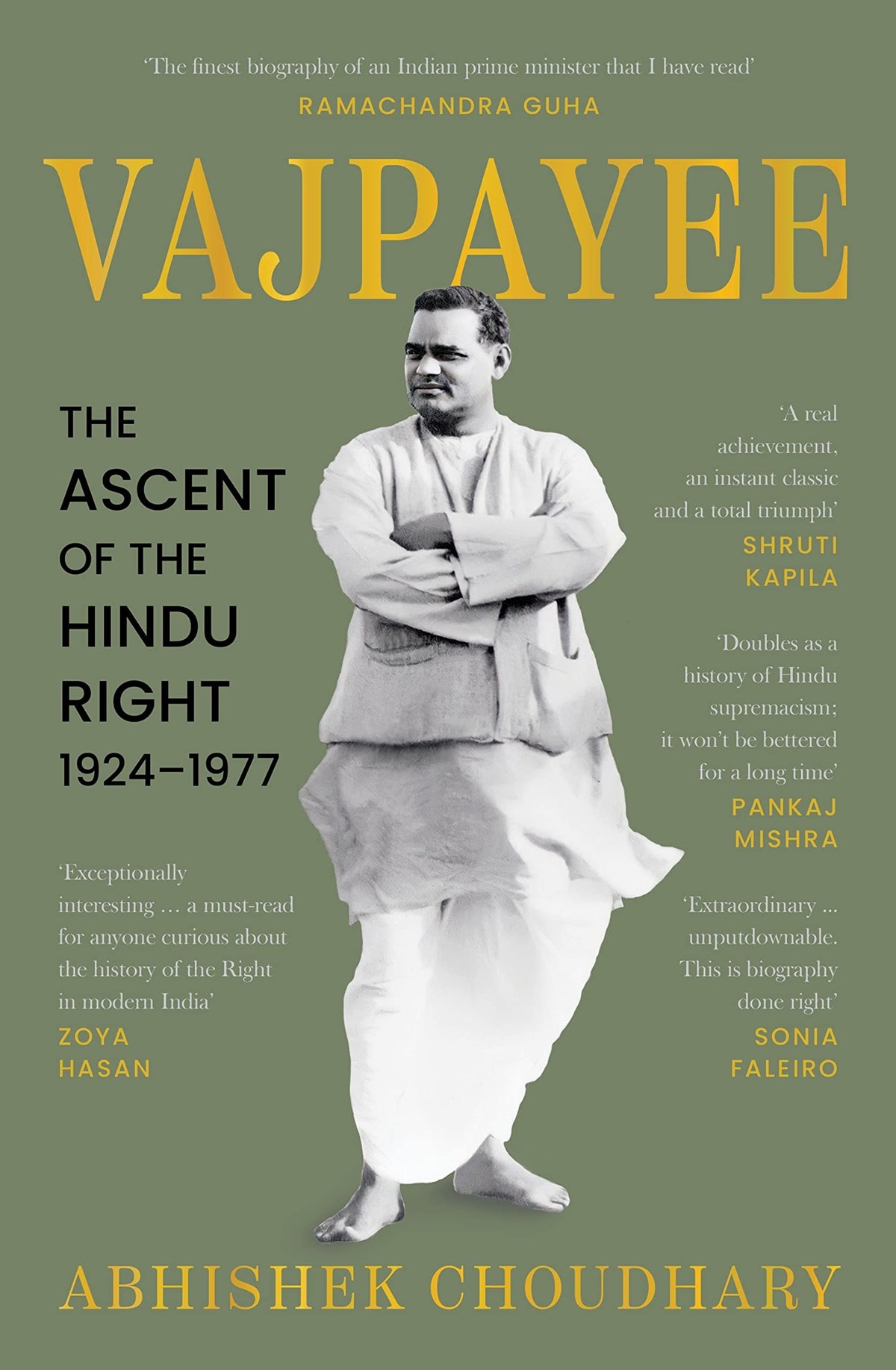 Vajpayee, throughout his life, was a committed and ardent supporter of the RSS. (Source: Amazon)
Vajpayee, throughout his life, was a committed and ardent supporter of the RSS. (Source: Amazon)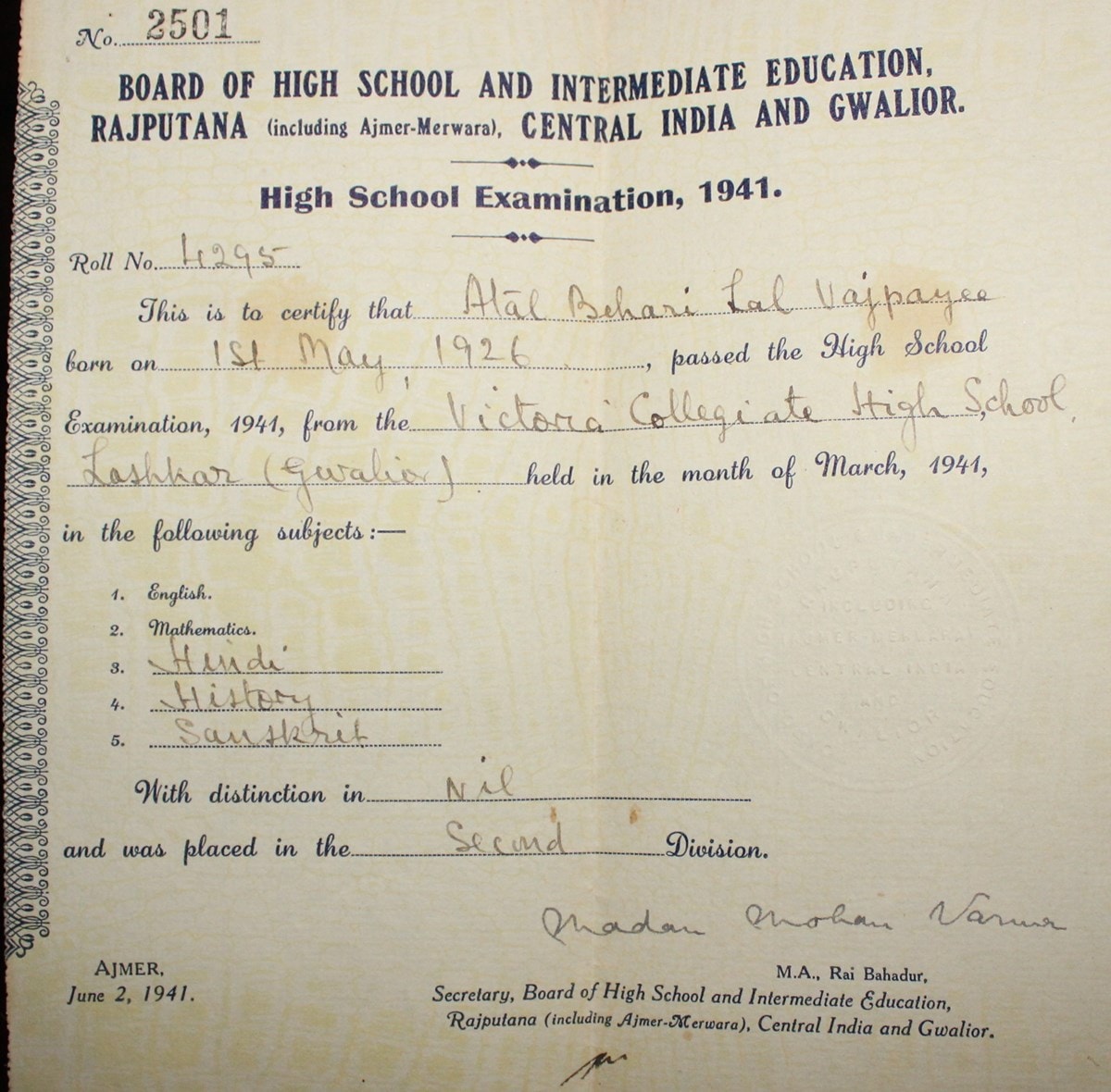 Atal Bihari Vajpayee’s high-school exam marksheet. (Source: Picador India)
Atal Bihari Vajpayee’s high-school exam marksheet. (Source: Picador India)







